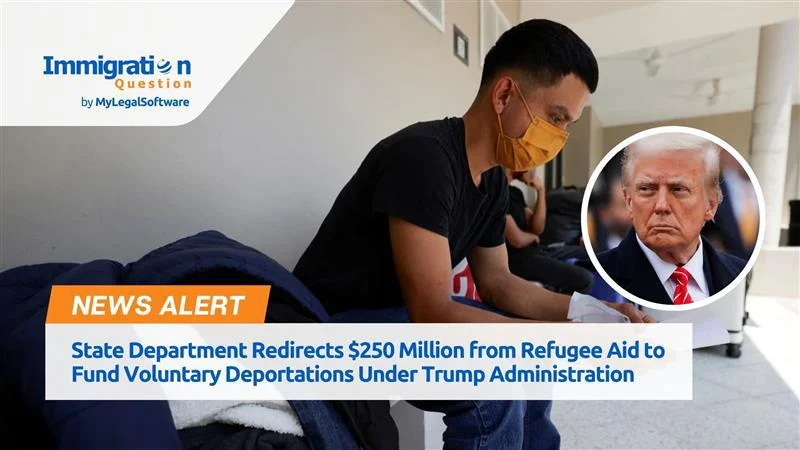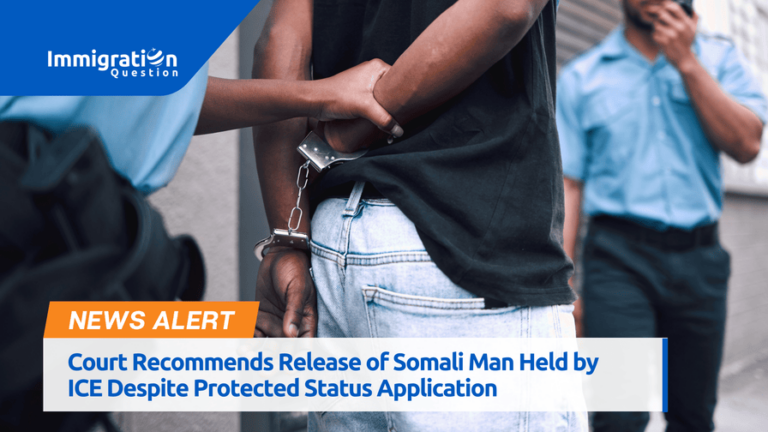The U.S. State Department relocated $250 million in refugee aid to cover voluntary deportations of illegal migrants under the Trump administration’s crackdown, money to fund free flights and exit bonuses to encourage self-deportation, an unprecedented shift in the way humanitarian assistance funds are being used.
Historic Shift in the Use of Refugee Assistance Funds
The U.S. State Department relocated $250 million to the Department of Homeland Security (DHS) to cover the costs of voluntary removals of undocumented migrants, marking a first-time diversion of funds previously allocated for refugee aid.
Free round-trip flights and incentives, such as bonuses, will be covered by the cash, the State Department spokesperson stated, urging illegal migrants to leave the United States voluntarily. Historically, the funds have been used to protect vulnerable populations overseas and to resettle refugees in the United States, said Elizabeth Campbell, a former deputy assistant secretary of state.
Migration and Refugee Assistance Program Reoriented
The $250 million comes from the Migration and Refugee Assistance (MRA) program, which the Bureau for Population, Refugees, and Migration administers. The bureau’s mission, according to an official statement, is to reduce illegal immigration, help those who are escaping persecution or violence, and seek durable solutions for displaced persons. However, the State Department’s reorganization plan explicitly steers the refugee bureau’s direction toward returning undocumented migrants to their countries of origin or countries of legal residence.
Deputy Secretary of State Christopher Landau, in a May 7 Federal Register notice, cited the legal basis for spending MRA funds on repatriation efforts, stating that the activities advance U.S. foreign policy interests. Landau’s notice did not specifically reference the $250 million transfer, and DHS has made no public announcement regarding the realignment of funding.
Project Homecoming: Encouraging ‘Self-Deportation’
The funding transfer is consistent with the Trump administration’s recent launch of Project Homecoming, a DHS program that pays a $1,000 stipend and travel assistance to migrants who voluntarily “self-deport.” DHS reported on May 19 that 64 migrants had enlisted to self-deport on chartered planes to Honduras and Colombia through this program.
Voluntary departures are viewed as a cost-effective option by the administration compared to standard deportations, which cost an average of $17,121 per individual. Project Homecoming aims to reduce enforcement expenses by encouraging migrants to voluntarily depart without incurring detention and removal proceedings.
Criticism and Fears by Social Activism Groups
While legal, MRA funding for deportation purposes is unprecedented and has been condemned by refugee campaigners. Refugee Council USA’s senior director of Policy and Advocacy, Meredith Owen Edwards, pointed out that these funds were supposed to provide protection and resettlement assistance to refugees, not repatriate them to the dangers or persecution they fled.
They warn that redirecting humanitarian funding to cover deportations is a betrayal of the U.S. role in refugee protection and could undermine the credibility of human rights worldwide.
Trump Promised Crackdown on Illegal Immigrants During 2024 Campaign
The budget shift is part of President Trump’s 2024 campaign promise to remove millions of unauthorized immigrants. The administration increased deportations and imposed significant fines on unauthorized immigrants, some totaling millions of dollars, to encourage voluntary departure.
Despite all of this, deportation numbers since Trump’s inauguration in January 2025 appear lower than those during the same period under the Biden administration, at approximately 200,000 versus 257,000.
Looking Ahead
As Project Homecoming expands and the administration continues its immigration enforcement, its effect on refugee assistance programs and migrant communities will be closely monitored. The Trump administration’s approach represents a continued preference for enforcement and voluntary removals over traditional refugee resettlement and protection.
Impacted migrants are urged to consult the law, so they know their rights and choices in the face of changing policies and mounting pressure to self-deport.
To stay up-to-date and informed, visit our news page, ask your immigration questions on Immigration Question, and get responses from licensed attorneys. For attorneys, streamline your case and lead management when you download the Immigration Question app.










